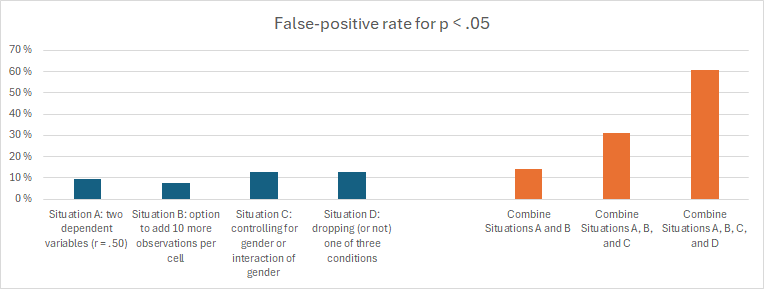Here's a hypothetical(?) question: if your article comes back with recommendations for minor revisions after quite some time, and in particular after many(!) interesting related developments, how best should one refer to that subsequent work? Let's of course assume that the original submission was posted publicly way back then (on arxiv). It feels odd if the paper would be significantly revised according to work that comes afterwards, but at the same time it feels odd if it completely ignores all said work. A greater passage of time is what makes this dissonance even more intense. Any thoughts/advice??
#ResearchPractices
As part of the Sparse (Graphs) Coalition (https://sparse-graphs.mimuw.edu.pl/doku.php?id=start), there will be a "Café" session:
https://sparse-graphs.mimuw.edu.pl/doku.php?id=sessions:2025sessions:2025cafesession1
We will host an online panel discussion related to the question, "How can we make the most of computer-aided methods in mathematics/combinatorics?"
#openscience #researchpractices #graphs #combinatorics #math
(via Sophie Spirkl)
A call for more remote access to mathematical meetings:
https://sites.google.com/view/hybridmathconferences
I have signed the petition, also listing my role in "A Sparse (Graphs) Coalition" (devoted to bespoke workshops for online collaboration in graph theory).
When data sharing is an answer and when (often) it is not: Acknowledging data-driven, non-data, and data-decentered cultures
#DataSharing #IstoHuvila #LuanneSSinnamon #ResearchData #ResearchPractices
Tomorrow begins the next session (organised by Hemanshu Kaul and Sophie Spirkl) in the Sparse (Graphs) Coalition:
https://sparse-graphs.mimuw.edu.pl/doku.php?id=sessions:2024sessions:2024session1
A few years ago I described the basic principles of this initiative here:
https://euromathsoc.org/magazine/articles/23
Looking forward to a fun week!
#openscience #researchpractices #graphs #combinatorics #math
For years we've been trying to teach our students good practices for academic #citation. On Friday one of #Norway's ministers resigned after charges of #plagiarism in her master's thesis. Another minister is now hanging by a thread for the same reason. Perhaps it will be easier to motivate the students for #ResearchPractices next year?
Table 1 of the "False-positive psychology" paper (Simmons, Nelson & Simonsohn 2011, https://papers.ssrn.com/sol3/papers.cfm?abstract_id=2916240) estimate the false-positive rate of some questionable #ResearchPractices, both alone and in combination (see attached figure).
I remember reading somewhere that the authors later stated that the numbers were inaccurate and should have been somewhat higher. Does anyone have a reference for this? #FalsePositivePsychology #QRP #phacking #HARKing #ReproducibiliTea
#Design #Overviews
Nine essential information architecture practices · Basic practices in researching, modeling, and prototyping https://ilo.im/153mkd
_____
#InformationArchitecture #ProductDesign #UxDesign #WebDesign #ResearchPractices #ModelingPractices #PrototypingPractices
New Year Research Integrity Challenge - Day 2
Have you heard of questionable research practices?
It's important to understand what constitutes questionable research practices. You can view our resource page on this topic to learn more.
Learn more: https://ukrio.org/research-integrity-resources/questionable-research-practices/
#UKRIOChallenge #ResearchIntegrity #ResearchPractices #ResearchCulture
